Economic Tycoon India
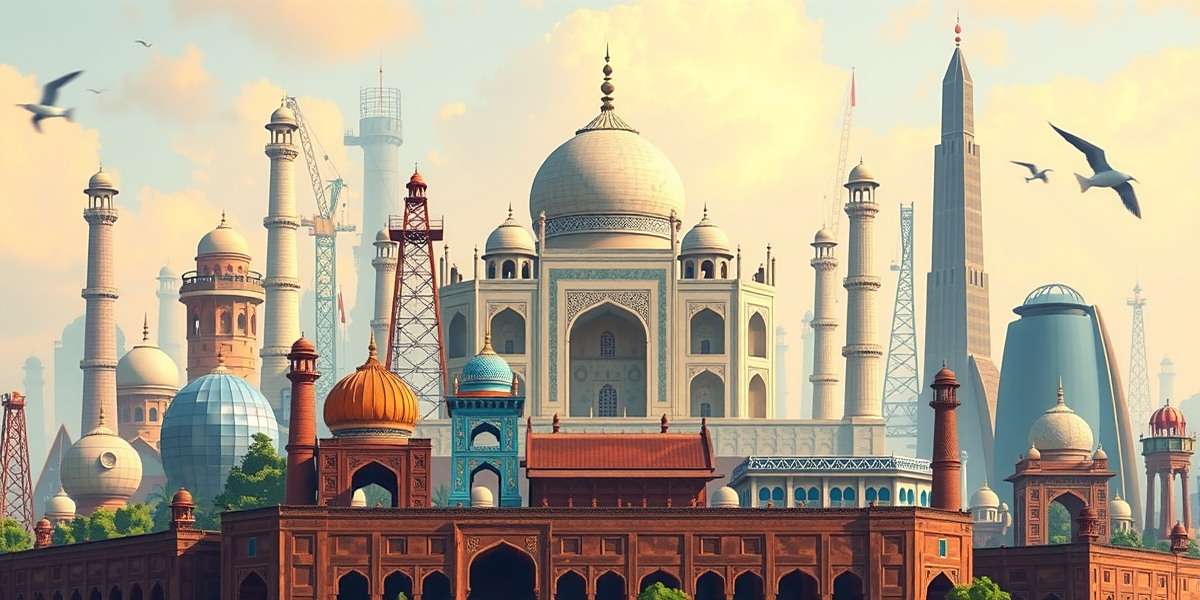
Overview of Economic Tycoon India
Welcome to Economic Tycoon India - the most comprehensive economic simulation game ever created for the Indian market! Developed by Desi Gamers Studio and launched in 2021, this game has revolutionized how Indians experience business simulation gaming with its authentic representation of India's diverse economic landscape.
Unlike generic business games that simply re-skin Western economic models, Economic Tycoon India has been built from the ground up with India's unique business environment in mind. From the bustling street markets of Mumbai to the tech hubs of Bangalore and the agricultural heartlands of Punjab, every aspect of India's economic ecosystem is meticulously recreated.
With the tagline "Apna Bharat, Apna Vyapar" (Our India, Our Business), the game invites players to embark on a journey from a small-time entrepreneur with just ₹50,000 startup capital to a full-fledged economic tycoon whose decisions impact the entire nation's economy.
What truly makes Economic Tycoon India stand out is its attention to the nuances of doing business in India - from navigating complex bureaucratic procedures to understanding regional consumer preferences and leveraging India's unique festivals and cultural events for business growth.
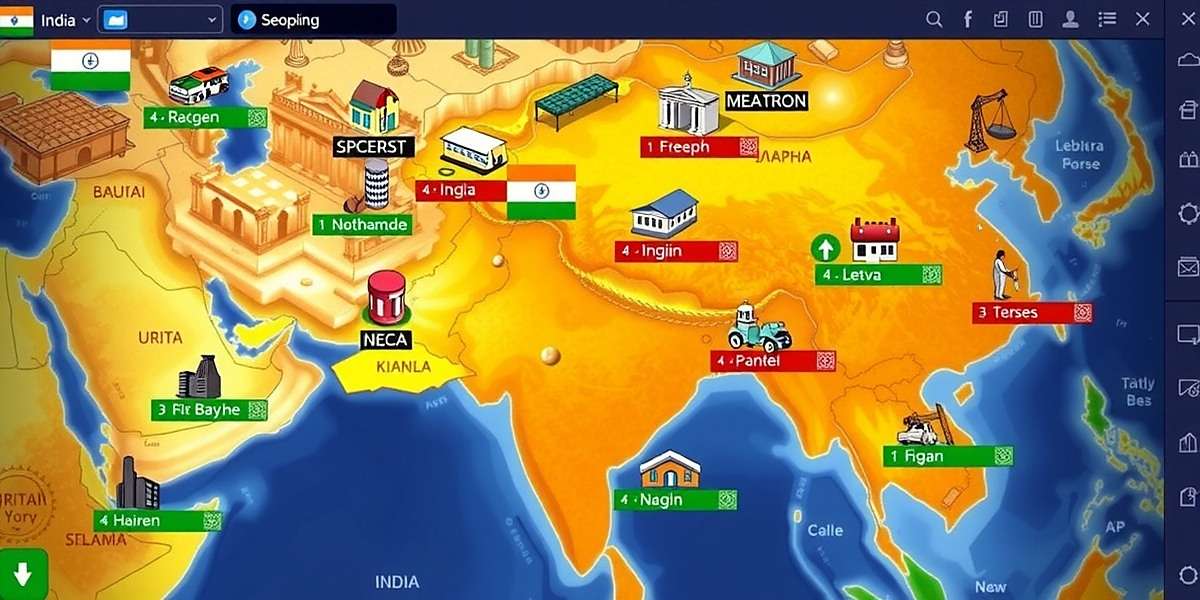
Gameplay Mechanics of Economic Tycoon India
Starting Your Entrepreneurial Journey
When you first launch Economic Tycoon India, you're greeted by "Vyapari Uncle" - a friendly, experienced businessman who guides you through India's business landscape. He'll help you understand the basics before you choose your starting path.
Your first big decision is selecting your starting region from 10 major Indian states, each with its own economic strengths, challenges, and consumer behaviors. Will you start in Maharashtra with its diverse industrial base, Tamil Nadu with its manufacturing prowess, or Gujarat with its business-friendly environment?
Next, choose your initial industry. With over 20 options ranging from traditional sectors like textiles and agriculture to modern industries like IT services and e-commerce, Economic Tycoon India lets you pursue whatever business passion you have.
Finally, create your business persona - from your educational background to your business philosophy. Will you be a risk-taking innovator or a steady, conservative businessman? These choices will affect how NPCs interact with you throughout the game.
Core Economic Systems
Economic Tycoon India features a dynamic, interconnected economic system that mimics India's real economy in remarkable detail:
• Supply Chain Management: Manage complex supply chains that reflect India's geographical challenges. Source raw materials from rural areas, process them in urban factories, and distribute to markets across the country while navigating infrastructure limitations.
• Demand Fluctuations: Consumer demand changes based on real Indian patterns - from seasonal variations (mangoes in summer, woolens in winter) to festival shopping sprees and even economic cycles that affect purchasing power.
• Regulatory Environment: Navigate India's unique regulatory landscape, from obtaining GST registration to environmental clearances. The game accurately portrays the bureaucratic hurdles Indian businesses face, but also rewards those who learn to work within the system.
• Labor Management: Hire and manage a diverse workforce reflecting India's employment landscape - from daily wage laborers to highly skilled professionals. Handle issues like union negotiations, skill development, and compliance with labor laws.
• Financial System: Access India's banking and financial system, including loans from nationalized banks, private sector banks, and even non-banking financial companies (NBFCs) with varying interest rates and terms.
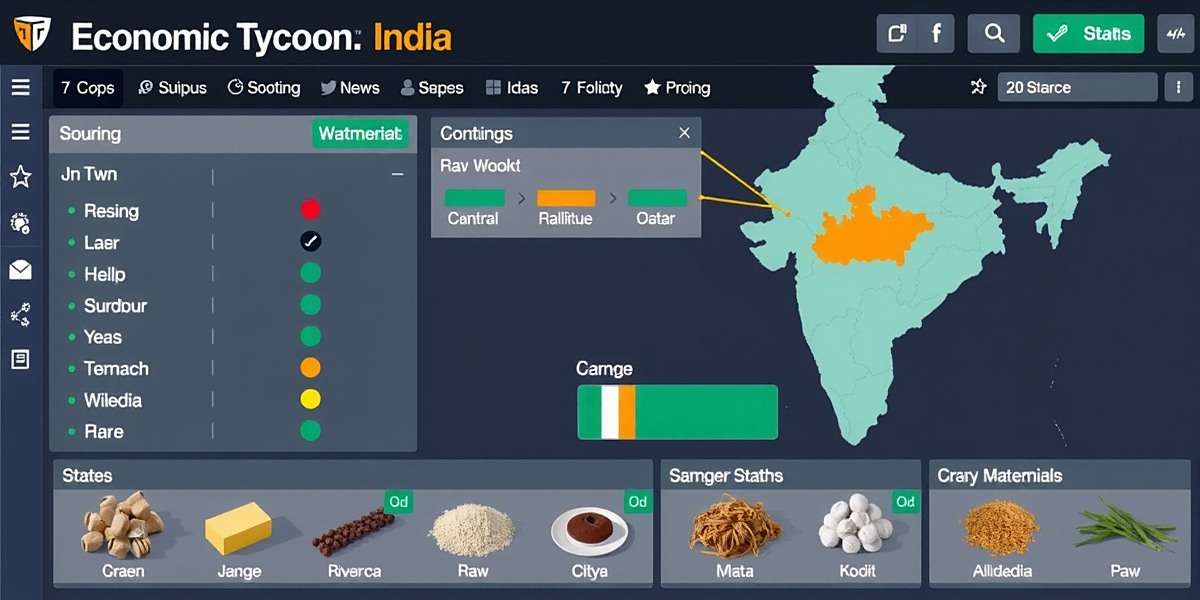
Indian Industries in Detail
Economic Tycoon India features 25+ accurately modeled Indian industries, each with its own mechanics, challenges, and opportunities:
Agriculture & Farming 🌾
Manage farms across India's diverse agro-climatic zones. Grow region-specific crops like rice in West Bengal, wheat in Punjab, or cotton in Gujarat. Deal with monsoon uncertainties, crop diseases, and government Minimum Support Prices (MSP).
Textiles & Garments 🧵
From cotton cultivation in Gujarat to fabric production in Tamil Nadu and garment manufacturing in Delhi NCR, build a complete textile empire. Export to international markets or supply to domestic brands like FabIndia and Manyavar.
Information Technology 💻
Establish IT parks in Bangalore, Hyderabad, or Pune. Develop software solutions for Indian government projects or global clients. Navigate the world of outsourcing, startup funding, and digital transformation.
FMCG & Retail 🛒
Create consumer goods that appeal to India's diverse population. Build a distribution network from large supermarkets in metro cities to small kirana stores in rural areas. Adapt products for different regional tastes.
Automotive 🚗
Manufacture two-wheelers, cars, or commercial vehicles in India's auto hubs like Chennai, Pune, or Gurgaon. Navigate changing emission norms, shifting consumer preferences, and the transition to electric vehicles.
Tourism & Hospitality 🏨
Develop hotels, resorts, and travel services across India's tourist destinations. Cater to domestic tourists during festival seasons and international visitors interested in India's heritage and culture.
Other industries include pharmaceuticals, renewable energy, real estate, media & entertainment, education, healthcare, and more - each with equal attention to Indian-specific details and challenges.
Regional Dynamics & Differences
One of Economic Tycoon India's most impressive features is how it captures India's regional diversity and its impact on business:
• Cultural Factors: Consumer preferences vary dramatically across regions. South Indian consumers may prefer different products and packaging than their North Indian counterparts, just like in real life.
• Language Considerations: Marketing and branding must adapt to regional languages. A successful advertising campaign in Hindi may need significant changes to resonate in Bengali or Telugu-speaking markets.
• Infrastructure Variations: Logistics and distribution challenges differ across regions. Transporting goods in the Northeast faces different hurdles than in the Indo-Gangetic plain.
• Regulatory Differences: While India has federal laws, state-level regulations can vary significantly. Labor laws in West Bengal differ from those in Rajasthan, affecting business operations.
• Economic Disparities: Income levels and purchasing power vary dramatically across urban and rural areas, as well as between different states, requiring different pricing and product strategies.
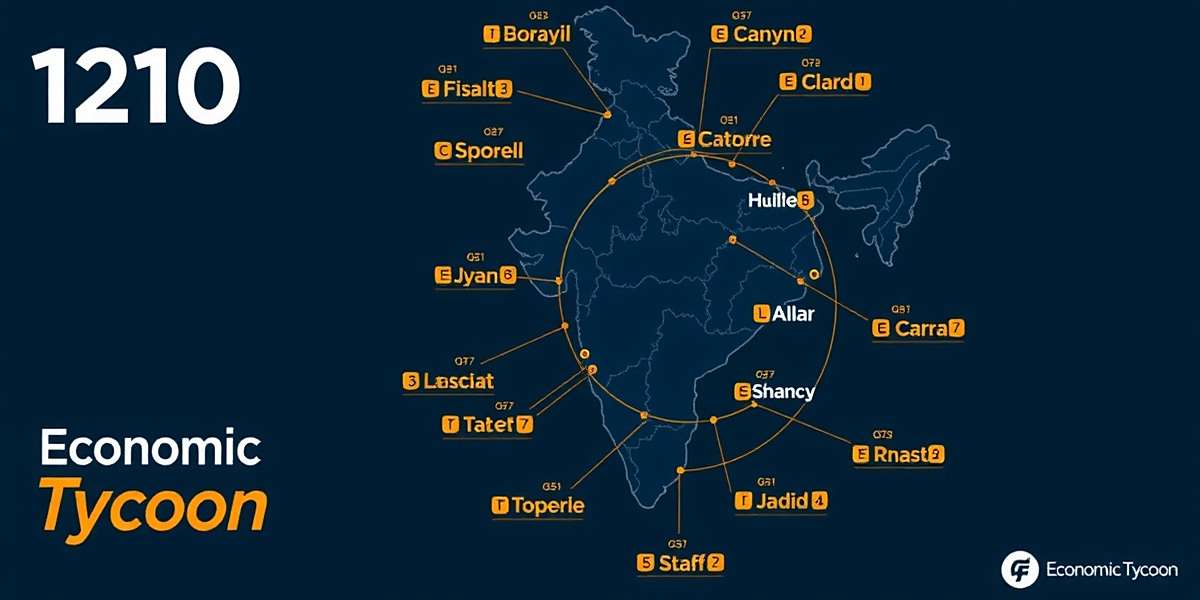
Multiplayer & Economic Cooperation
Economic Tycoon India offers a robust multiplayer experience that reflects India's business community spirit:
• Business Alliances: Form "sangathans" (associations) with other players to create industry cartels, influence market prices, and collectively lobby for favorable policies - just like real Indian business federations.
• Joint Ventures: Partner with other players to tackle large projects that would be impossible alone, such as building a new port or establishing a nationwide retail chain.
• Commodity Exchanges: Trade raw materials and finished goods on player-driven marketplaces that fluctuate based on supply and demand dynamics across the entire player base.
• National Economic Events: Compete or collaborate in country-wide events that affect the virtual Indian economy, from handling a recession to capitalizing on a boom in a particular sector.
• State Competitions: Players from each Indian state compete to boost their state's virtual economy, reflecting the real competition between states for investment and economic growth.
Download Statistics & Player Base
Since its launch in early 2021, Economic Tycoon India has seen phenomenal growth, crossing the 5 million download mark in just 18 months - a remarkable achievement for an Indian-developed simulation game.
The player base is spread across all major Indian cities, with Mumbai, Delhi NCR, Bangalore, Hyderabad, and Ahmedabad contributing the largest numbers. What's interesting is the significant player base in tier-2 and tier-3 cities like Surat, Jaipur, Lucknow, and Indore, where economic aspirants find the game particularly inspiring.
Player demographics show a balanced mix between younger players (18-30 years) who enjoy the strategic challenges and older players (31-50 years) who appreciate the realistic business mechanics. Notably, Economic Tycoon India has a 42% female player base, higher than the industry average for strategy games, indicating its broad appeal across genders.
Engagement metrics are equally impressive, with players logging in an average of 4.2 times per week. The game sees significant spikes during major Indian festivals, with Diwali season recording 30% higher activity as players try to capitalize on virtual festival shopping trends.
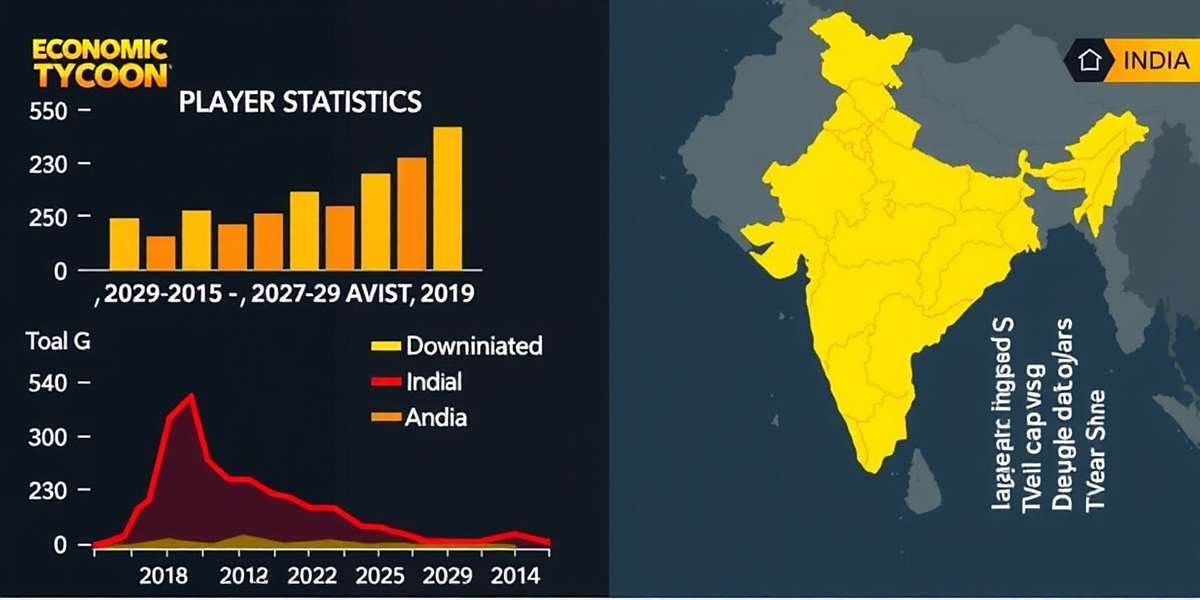
Player Reviews & Feedback
Players from all walks of life have embraced Economic Tycoon India for its realistic portrayal of Indian business and educational value. Here's what some of them have to say:
"As someone who builds real estate projects in Gujarat, I'm amazed by how accurately Economic Tycoon India captures the challenges of land acquisition, getting approvals from local bodies, and understanding regional demand. The game's portrayal of Gujarat's business environment is spot on - from the proactive government policies to the entrepreneurial spirit of the people. I've even used some strategies from the game in my real business!"
"My professors recommended Economic Tycoon India as a learning tool, and it's been transformative for my understanding of Indian business! Concepts like working capital management, supply chain optimization, and market segmentation that seemed abstract in textbooks make perfect sense when I apply them in the game. The regional differences in consumer behavior are particularly well-modeled - something that's often overlooked in Western business games."
"I've been in the textile business for 30 years, and Economic Tycoon India brings back so many memories! The way they've captured the ups and downs of cotton prices, the impact of monsoons on crop yields, and even the dynamics of trade fairs like the Surat Textile Expo is incredible. My only suggestion is to add more details about export procedures to countries like Bangladesh and UAE, which are major markets for Indian textiles."
"I've always wanted to start my own business but was scared to take the risk. Economic Tycoon India has given me the confidence to try different ideas without any real-world consequences. I started with a small handicraft business in the game, made all the mistakes, learned from them, and now I'm planning to launch a similar venture in real life. The game's tutorial on GST registration alone saved me so much confusion!"
"As someone working in Bangalore's IT industry, I'm impressed by how accurately Economic Tycoon India models the tech business ecosystem. From dealing with talent acquisition challenges to understanding government IT policies like STPI schemes, the game captures the essence of running a tech company in India. The multiplayer mode where we collaborate on government digital initiatives is particularly engaging and realistic."
"I never thought a business game would interest me, but Economic Tycoon India is so addictive! I started playing with my husband and soon found myself managing a successful FMCG business in the game. What I love most is how it incorporates Indian festivals - preparing for Diwali sales or managing inventory during Pongal gives the game a uniquely Indian flavor. It's also taught me so much about how businesses work, which helps me understand my husband's work better!"
Many reviewers have highlighted how Economic Tycoon India has helped bridge the gap between theoretical business knowledge and practical application, particularly in the Indian context. Several educational institutions have started recommending the game as a supplementary learning tool for business students.
Regional Adaptations & Localization
True to its name, Economic Tycoon India has gone to great lengths to localize the game for different regions of India, making it relatable to players from Kashmir to Kanyakumari:
Language Support
Understanding India's linguistic diversity, Economic Tycoon India offers full support for 22 Indian languages, covering over 95% of the country's population:
• Hindi (with regional variations like Bhojpuri, Rajasthani)
• Bengali
• Telugu
• Marathi
• Tamil
• Gujarati
• Urdu
• Kannada
• Malayalam
• Punjabi
• Odia
• Assamese
• and 10 more regional languages
What's remarkable is that the localization goes beyond mere translation. Business terms are adapted to their regional equivalents. For example, "wholesale market" becomes "sadar bazaar" in Hindi, "mandai" in Tamil, "haat bazar" in Bengali, and "sanstha bazar" in Gujarati, making the game feel natural to players from different regions.
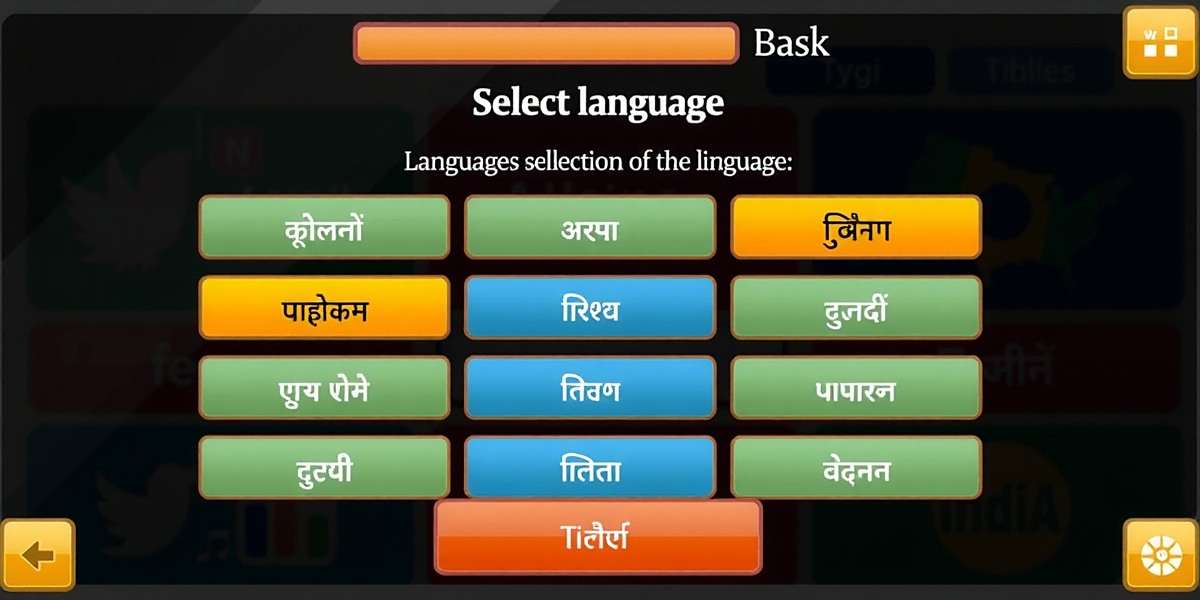
Regional Business Scenarios
Economic Tycoon India features region-specific business scenarios that reflect the unique economic activities of different parts of India:
• North India: Players can engage in agribusiness in Punjab's fertile lands, textile trading in Ludhiana, or tourism ventures in Uttarakhand's hill stations. The game accurately portrays the region's business culture, including the importance of personal relationships in business deals.
• South India: Special scenarios include managing IT services in Bangalore, automobile manufacturing in Chennai's "Detroit of India," and spice trading in Kerala. The game captures the region's emphasis on quality and technology adoption.
• East India: Business opportunities include jute manufacturing in West Bengal, tea plantations in Assam, and coal mining in Jharkhand. The game reflects the unique logistical challenges of doing business in this region.
• West India: Players can engage in diamond trading in Surat, chemical manufacturing in Vadodara, or textile exports from Ahmedabad. The game highlights the region's entrepreneurial spirit and international trade connections.
• Northeast India: Special scenarios focus on organic farming, handloom production, and tourism development, while addressing the unique infrastructure and logistical challenges of the region.
Festival & Cultural Integrations
One of the most beloved aspects of Economic Tycoon India is how it incorporates India's rich festival calendar and cultural events, which have a significant impact on business:
• Diwali Special: The biggest in-game event, featuring increased consumer spending, special discounts, and business expansion opportunities. Players must manage increased inventory, temporary staff hiring, and logistics during this peak season.
• Holi Festival: Players in FMCG and beverage industries see a surge in demand for colors, sweets, and drinks. The game simulates the pre-Holi rush and post-Holi lull in business activity.
• Pongal/Makar Sankranti: Agricultural businesses see special opportunities, with players able to participate in virtual harvest festivals and trade fairs.
• Eid-ul-Fitr: Special market scenarios for clothing, sweets, and food items, reflecting the shopping trends in Muslim-majority areas across India.
• Durga Puja: Significant business opportunities in West Bengal and Bengali communities across India, particularly in apparel, cosmetics, and food sectors.
• Regional Festivals: From Ganesh Chaturthi in Maharashtra to Onam in Kerala and Bihu in Assam, the game features over 30 regional festivals that impact local economies.
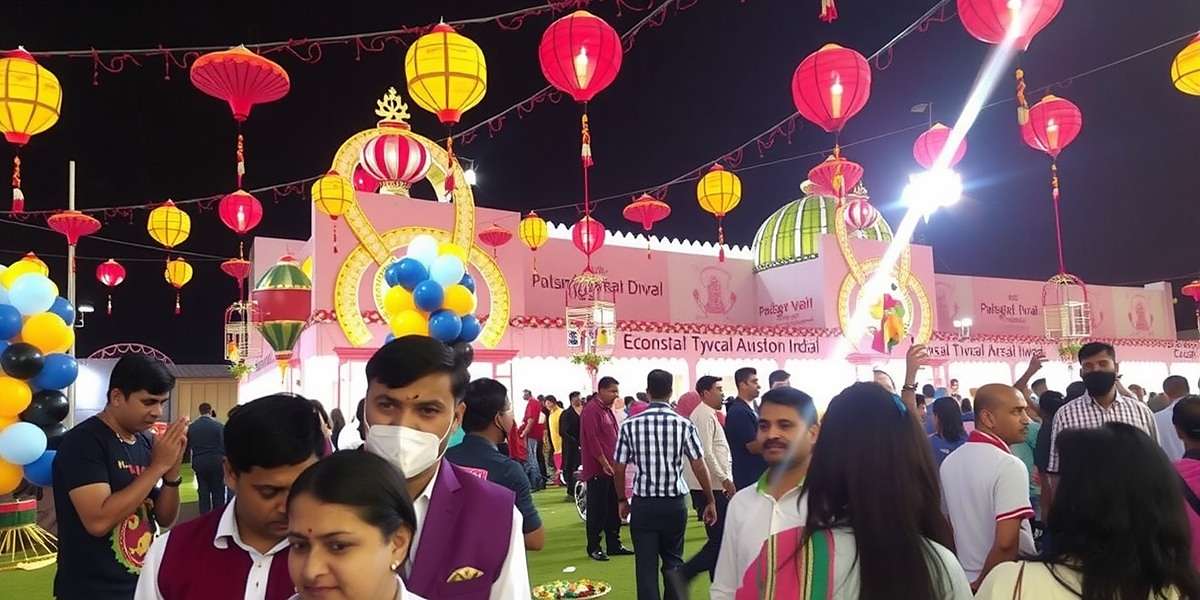
Indian Player Strategies & Tips
Successful players of Economic Tycoon India have developed unique strategies that leverage their understanding of Indian business culture. Here are some proven tips from top players across India:
Beginner Strategies
When starting out in Economic Tycoon India, focus on these fundamentals that mirror real Indian business wisdom:
• Start with what you know. Choose an industry and region you're familiar with in real life. Your existing knowledge will give you an advantage in understanding market dynamics.
• Build relationships first. In Indian business, relationships matter as much as profits. Spend time networking with in-game NPCs - suppliers, distributors, and even government officials. These relationships will pay off during difficult times.
• Master the "jugaad" approach. When facing resource constraints or regulatory hurdles, find innovative workarounds. Indian businesses thrive on creativity, and the game rewards players who think outside the box.
• Plan for festivals. Start preparing 2-3 months before major festivals. Stock up on inventory, hire temporary staff, and run promotions. Festivals can make or break your annual profits in the game, just like in real India.
• Diversify within your region first. Before expanding to other states, build a strong presence in your home region. Understand local tastes, establish supply chains, and build brand recognition.
• Keep an eye on government schemes. The game regularly introduces new government initiatives - from Make in India subsidies to Startup India benefits. Positioning your business to take advantage of these schemes can provide significant boosts.

Mid-Game Expansion Strategies
Once your initial business is stable, use these strategies to grow your empire in Economic Tycoon India:
• Expand to complementary industries. If you're successful in cotton farming, consider moving into textile manufacturing. This vertical integration will reduce costs and increase profit margins, a common strategy in Indian business.
• Develop a pan-India distribution network. Invest in warehouses and transportation across different regions. A strong distribution network is key to success in India's diverse market, as seen with companies like Reliance and Tata.
• Adapt products for regional tastes. What works in North India may need modification for South Indian markets. For example, food products may need to adjust for spice levels or vegetarian preferences in different regions.
• Build a strong brand identity. As you expand, invest in building a recognizable brand. In India, brand loyalty is strong once trust is established. Focus on consistent quality and customer service.
• Explore public-private partnerships. The game offers opportunities to collaborate with government entities on infrastructure projects, public services, and rural development initiatives - just like many successful Indian business groups.
• Invest in technology. Automate processes where possible to improve efficiency. From inventory management systems to digital marketing, technology adoption can significantly boost your bottom line in the game.
Advanced Economic Mastery
For experienced players looking to dominate the market in Economic Tycoon India, these advanced strategies can lead to market leadership:
• Influence market trends. Use your growing economic power to shape consumer preferences through marketing campaigns and strategic pricing. Create new demand for products where none existed before.
• Develop export capabilities. Once you've dominated domestic markets, expand to international markets. Focus on products where India has a competitive advantage, like textiles, pharmaceuticals, and IT services.
• Form strategic industry alliances. Collaborate with other players to set industry standards, control prices, and lobby for favorable regulations - mirroring how real Indian business associations operate.
• Diversify across unrelated industries. Follow the example of India's biggest business houses like Tata and Reliance by building a diversified portfolio. This protects against industry-specific downturns.
• Invest in research and development. Develop new products and technologies that can disrupt existing markets. Innovation is key to long-term success in India's rapidly evolving economy.
• Practice corporate social responsibility. As your business grows, invest in community development projects. Not only does this improve your brand image, but it also unlocks special government incentives in the game.
• Manage currency fluctuations. As you engage in international trade, develop strategies to hedge against currency risks - an important skill for real Indian exporters.
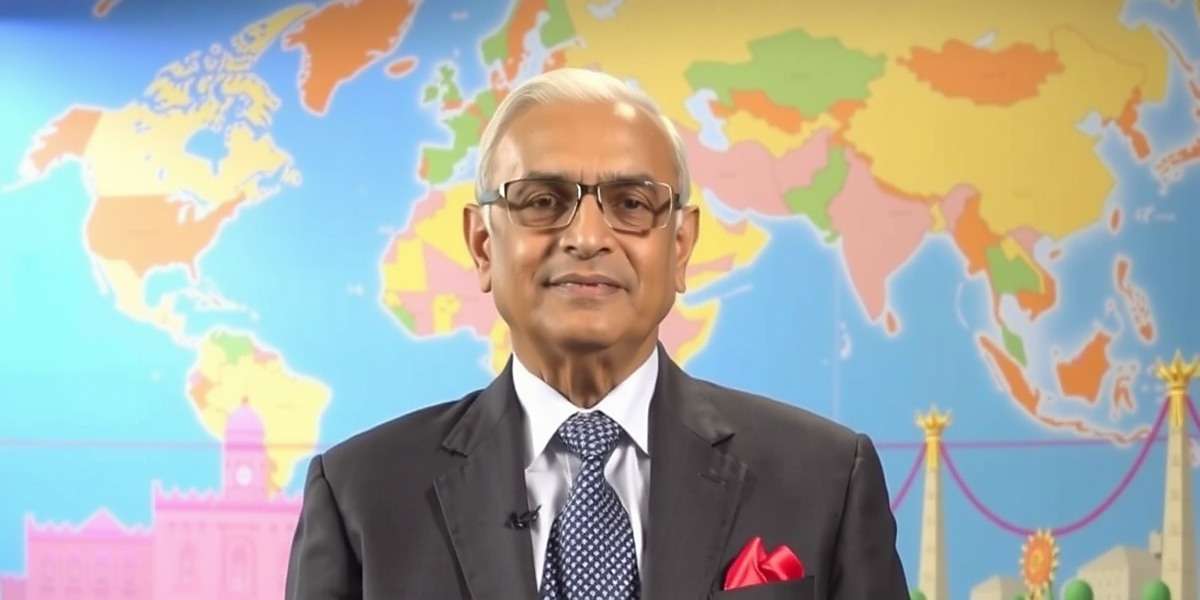
Community & Local Events
The Economic Tycoon India community has grown into a vibrant ecosystem of players, entrepreneurs, and business enthusiasts who share knowledge both in-game and in real life:
Online Community Platforms
• Official Forums: The game's official forums have over 300,000 registered members discussing strategies, sharing success stories, and providing feedback to developers. Regional sub-forums allow players to connect with others from their area.
• WhatsApp Groups: Thousands of regional and industry-specific WhatsApp groups exist, where players exchange tips in their local languages. These groups often organize informal competitions and share region-specific business insights.
• YouTube Channels: Over 500 YouTube channels are dedicated to Economic Tycoon India, with the largest channels boasting over 200,000 subscribers. Content ranges from beginner tutorials to advanced strategy guides and live gameplay sessions.
• Social Media Communities: Active communities on Facebook, Instagram, and Twitter with millions of combined followers. Players share screenshots of their business empires, participate in weekly challenges, and discuss game updates.
• Discord Servers: Specialized Discord servers for different industries in the game, where players collaborate on multiplayer projects and share industry-specific strategies.
Real-World Meetups & Events
What makes the Economic Tycoon India community unique is its strong connection to real-world business activities:
• City Meetups: Monthly meetups in over 30 Indian cities where players gather to discuss strategies, network with real entrepreneurs, and even form real business partnerships. Mumbai and Bangalore meetups regularly attract over 200 participants.
• Business Workshops: Player-organized workshops that bridge the gap between the game and real business. Topics range from GST compliance to digital marketing, often featuring real business experts as guest speakers.
• University Competitions: Many business schools across India host Economic Tycoon India tournaments as part of their curriculum. These events often include cash prizes and mentorship opportunities with real business leaders.
• Industry Conferences: The game's developers partner with real industry conferences like CII and FICCI events, where they showcase how the game models real economic scenarios.
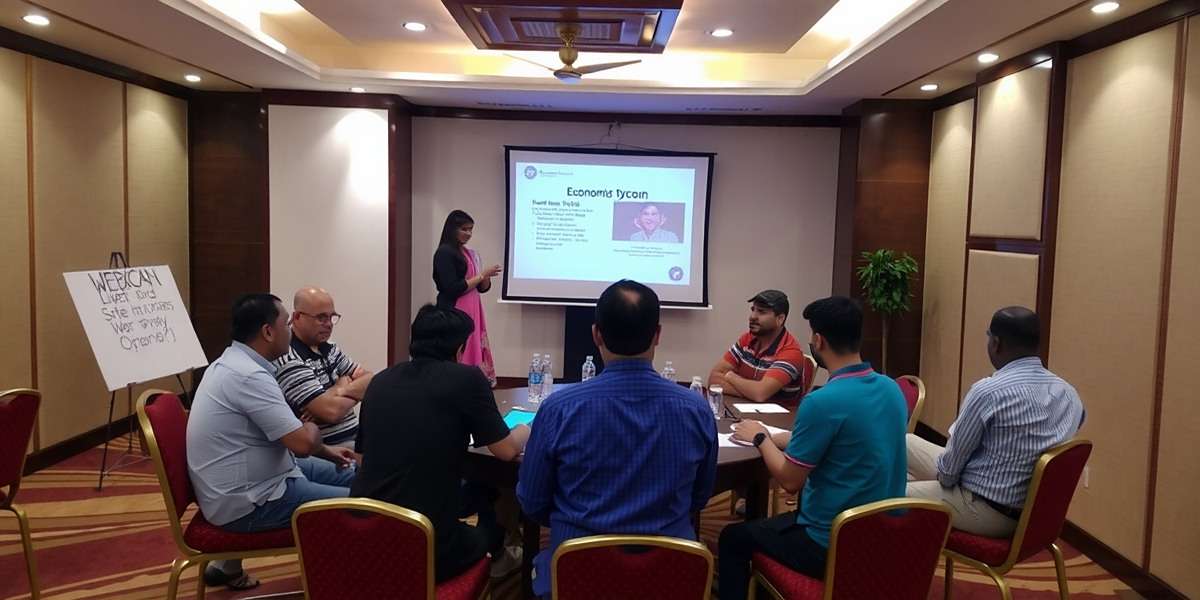
In-Game Events & Tournaments
The developers of Economic Tycoon India organize regular events that keep the game fresh and aligned with real-world economic developments:
• "Budget Challenge": Released shortly after India's Union Budget, this event lets players adapt their business strategies to new tax structures and government policies, educating them about real economic changes.
• "Make in India Campaign": A month-long event encouraging players to develop manufacturing capabilities and reduce imports, with special rewards for businesses that achieve self-reliance.
• "Startup India Competition": Players get to launch innovative new businesses with limited resources, competing for virtual funding and mentorship from in-game versions of famous Indian entrepreneurs.
• "Green India Initiative": Focused on sustainable business practices, this event challenges players to reduce their environmental footprint while maintaining profitability - reflecting India's growing focus on sustainability.
• "Digital India Drive": Players are encouraged to adopt digital technologies across their businesses, from online sales platforms to digital payment systems and data analytics.
• "Global Trade Expo": A multiplayer event where players showcase their products to international buyers, negotiating deals and navigating international trade regulations.
Educational Impact & Real-World Applications
While Economic Tycoon India is primarily an entertainment game, its educational value has made it a valuable tool for learning about business and economics in the Indian context:
Business Education
Numerous educational institutions across India have recognized Economic Tycoon India as a valuable teaching aid:
"We've incorporated Economic Tycoon India into our curriculum for BBA and MBA students," says Dr. Rajiv Sinha, Professor of Business Management at a leading Mumbai college. "The game provides a practical, hands-on way to understand complex business concepts in the Indian context. Students who play the game demonstrate better understanding of real-world business challenges than those who rely solely on textbooks."
Many commerce schools now organize Economic Tycoon India tournaments as part of their extracurricular activities, with students forming teams to manage virtual businesses and compete against other colleges.
Entrepreneurship Development
Several entrepreneurship development programs and NGOs have started using Economic Tycoon India to train aspiring entrepreneurs, particularly those from rural and semi-urban areas:
The National Institute for Entrepreneurship and Small Business Development (NIESBUD) has partnered with the game's developers to create a special educational version that focuses on small business management in India. This version is used in their training programs across rural India.
Numerous success stories have emerged of players who started real businesses after practicing in the game. From a small organic farm in Punjab to a successful e-commerce venture in Rajasthan, these entrepreneurs credit Economic Tycoon India with giving them the confidence and basic knowledge to start their ventures.
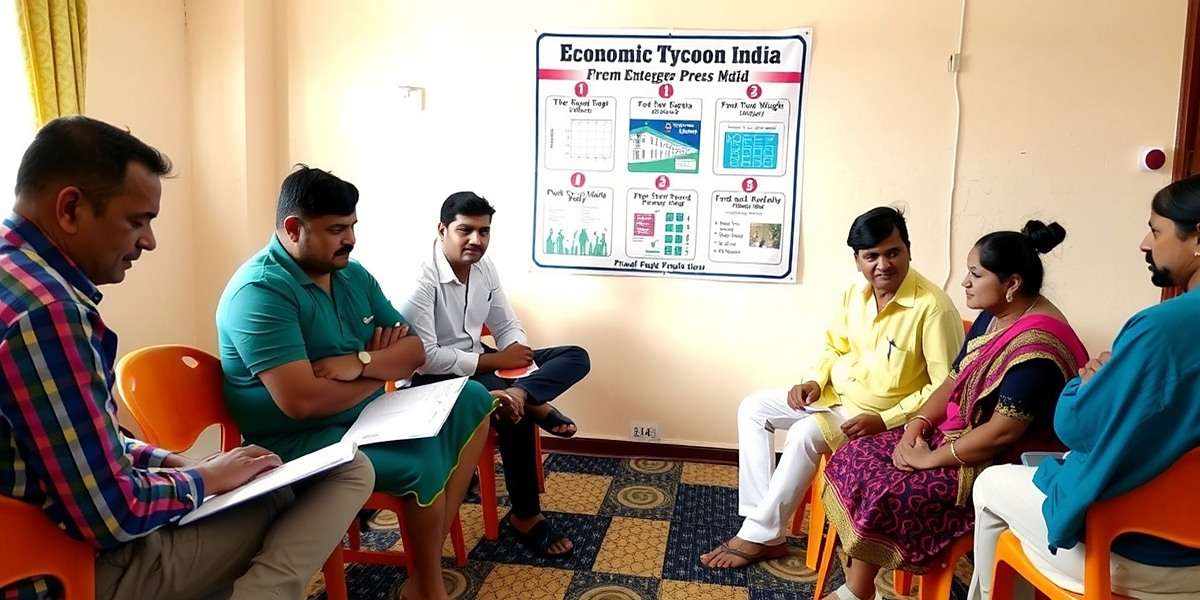
Financial Literacy
Economic Tycoon India has proven effective in improving financial literacy among players from diverse backgrounds:
Players report better understanding of concepts like cash flow management, profit margins, investment returns, and risk assessment after playing the game regularly. Many have shared that they've started applying these concepts to their personal finances, from household budgeting to making better investment decisions.
"Before playing Economic Tycoon India, I didn't understand how loans and interest rates worked," says Ravi, a 32-year-old auto-rickshaw driver from Delhi. "Now I can calculate how much a loan would actually cost me, and I'm better able to manage my savings. The game taught me things my school never did!"
Understanding India's Economy
Beyond business skills, Economic Tycoon India has helped players develop a better understanding of how India's economy functions as a whole:
Players learn how different sectors of the economy are interconnected, how government policies affect businesses, and how global economic events impact India. Many players report following business news more closely after playing the game, as they can now better understand complex economic concepts and their real-world implications.
"I never used to care about the Union Budget before," says Aarti, a 28-year-old teacher from Jaipur. "But after playing Economic Tycoon India, I find myself watching the budget speech and understanding how changes in tax rates or government spending will affect different businesses. It's made me much more aware of how our economy works."
Future Updates & Roadmap
The developers of Economic Tycoon India have an ambitious roadmap based on player feedback and emerging trends in India's economy:
• Rural Economy Expansion: Upcoming updates will feature more detailed rural economic activities, including agricultural cooperatives, rural retail networks, and cottage industries - reflecting the importance of rural India in the national economy.
• Digital Economy Integration: New features will include more detailed modeling of India's digital economy, including e-commerce platforms, digital payment systems, online education, and telemedicine services.
• Green Energy Revolution: A major update focused on renewable energy, including solar power projects, wind farms, and electric vehicle manufacturing - aligned with India's renewable energy goals.
• Make in India 2.0: Enhanced manufacturing capabilities with more detailed supply chains, focusing on high-tech industries like electronics, pharmaceuticals, and defense manufacturing.
• Real Entrepreneur Collaborations: Partnerships with real Indian business leaders to create in-game mentorship programs, where players can learn from successful entrepreneurs' real experiences and strategies.
• Economic Crisis Management: New scenarios based on real economic challenges India has faced, from currency fluctuations to supply chain disruptions, allowing players to develop crisis management skills.
• State-Specific Economic Policies: More detailed modeling of state-level economic policies and incentives, allowing players to develop strategies tailored to each state's business environment.
This game is recommended by daman games. To discover more quality Indian games, please visit daman games.